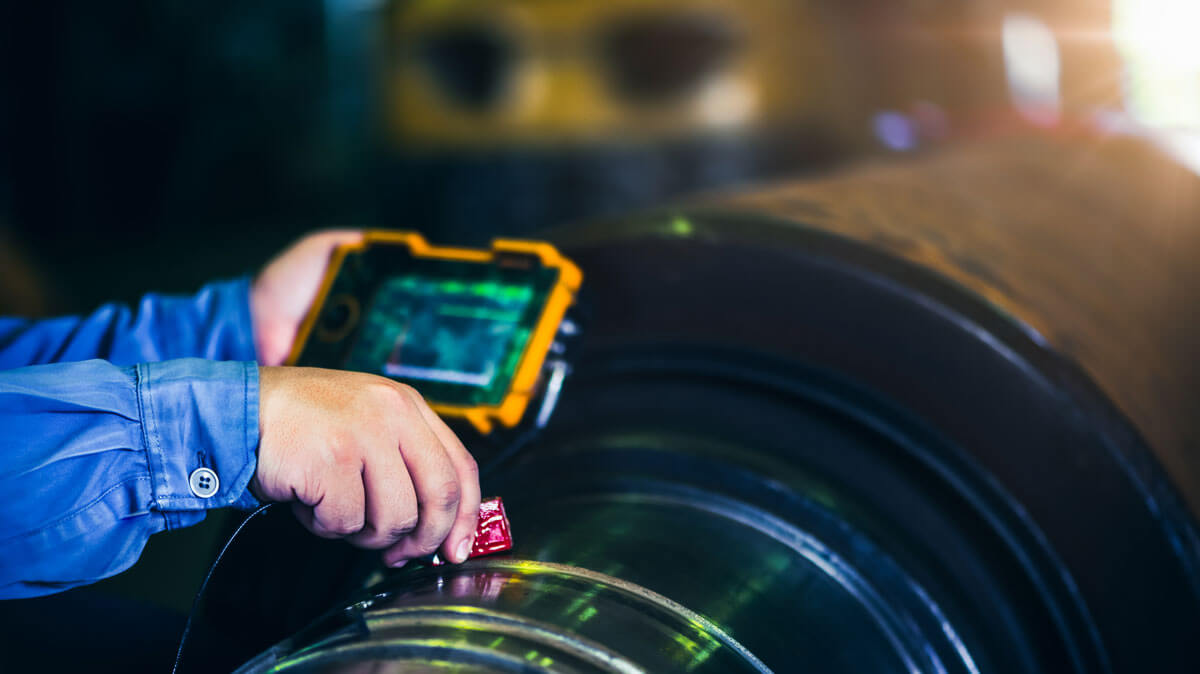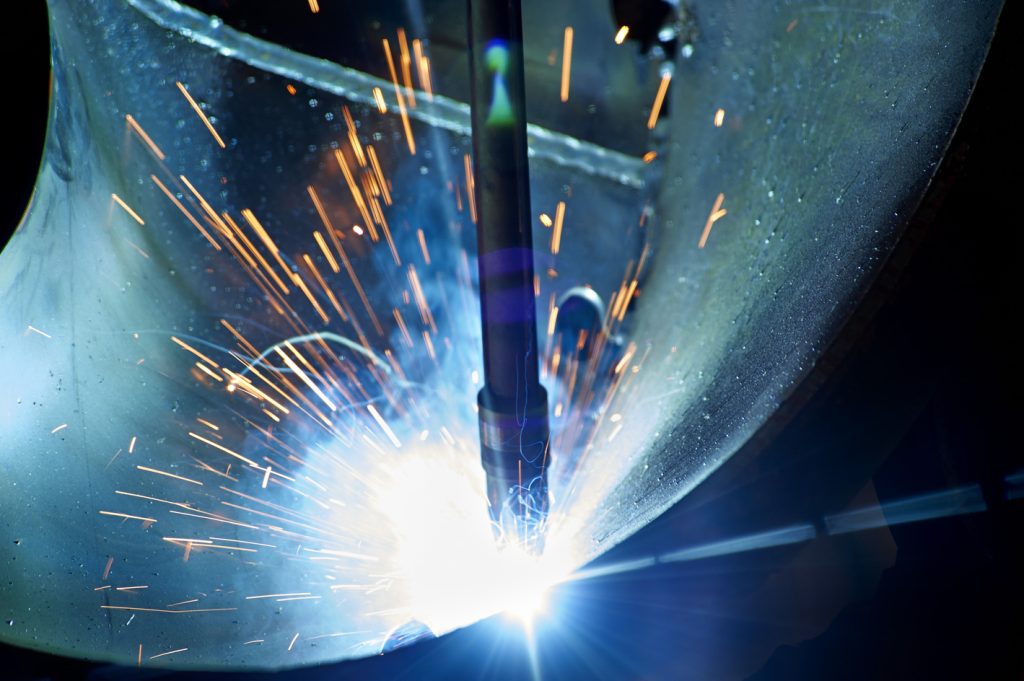Trustworthy Welding Inspection Gilbert Arizona: Secret Factors to Consider for Ideal Results
Trustworthy Welding Inspection Gilbert Arizona: Secret Factors to Consider for Ideal Results
Blog Article
The Influence of Rigorous Welding Evaluation on Sector Criteria: Promoting Security, Integrity, and Conformity Throughout Various Fields
The function of extensive welding examination is increasingly acknowledged as an important part in improving industry criteria, where integrity, safety, and conformity take precedence across varied markets. What transformations might we prepare for in welding techniques as the demand for quality and security increases?
Importance of Welding Examinations
Identifying the vital function of welding examinations in maintaining top quality and security criteria, industry experts prioritize these assessments to make sure structural integrity. Welding inspections function as a crucial checkpoint in the construction procedure, recognizing problems that might endanger the durability and safety of welded structures. By systematically examining welds, inspectors can identify issues such as incomplete infiltration, porosity, and cracks, which might not be visible to the naked eye.
The importance of these assessments expands beyond plain conformity; they are crucial for protecting lives and shielding financial investments. In crucial industries such as building and construction, production, and aerospace, a solitary faulty weld can bring about tragic failures, resulting in both financial loss and human casualties. As a result, implementing strenuous inspection methods alleviates these threats and enhances overall project integrity.
Additionally, constant welding evaluations cultivate a culture of top quality throughout organizations, urging welders to abide by ideal techniques and preserve high criteria in their work. This dedication to quality not only boosts functional effectiveness yet likewise reinforces the track record of firms within their corresponding industries. Hence, welding inspections are indispensable in promoting safety, reliability, and conformity throughout numerous markets.
Secret Industry Standards and Rules
The structure of welding inspections is underpinned by a robust collection of industry standards and laws that control techniques throughout numerous industries. Key establishments, such as the American Welding Society (AWS) and the International Company for Standardization (ISO), establish standards that make sure high quality and safety and security in welding operations. AWS D1.1 outlines vital requirements for welding steel frameworks, while ISO 3834 specifies high quality demands for combination welding.
In addition to these certain standards, sector guidelines like the American National Specification Institute (ANSI) and Occupational Safety and Health And Wellness Administration (OSHA) mandates further improve compliance by establishing security protocols and operational finest techniques. These policies are vital in markets such as aerospace, production, and construction, where welding honesty is paramount.
In addition, sector-specific criteria, such as those from the American Culture of Mechanical Designers (ASME) for pressure vessels, give added layers of examination to make certain that welds satisfy strict security and efficiency criteria. Adherence to these standards not just facilitates regulative compliance yet likewise cultivates a culture of high quality and integrity throughout the welding sector, eventually safeguarding public well-being and improving functional efficiency.

Benefits of Conformity and Dependability
Regularly adhering to market criteria and laws in welding evaluations yields significant advantages, improving overall dependability and performance. The primary advantage is the guarantee of top quality in bonded check my site joints, which directly adds to the safety and security of structures and equipment. Conformity with established standards minimizes the threat of failing and tragic occurrences, consequently safeguarding both human life and valuable possessions.
Additionally, companies that focus on rigorous welding evaluations cultivate a culture of liability and professionalism. This commitment not just reinforces the credibility of the firm yet likewise imparts confidence in customers and stakeholders relating to the honesty of services and products. Dependable welding processes cause lowered expenses connected with rework, repair services, and prospective lawful obligations stemming from below average handiwork.
Furthermore, maintaining conformity with market requirements promotes smoother regulative interactions, as companies can conveniently show adherence to essential methods (Welding Inspection Gilbert Arizona). This aggressive approach can bring about advantageous collaborations and chances within the industry, along with accessibility to new markets
Obstacles in Welding Evaluation
Navigating the complexities of welding examination offers a myriad of difficulties that can hinder conformity with industry standards. One considerable barrier is the irregularity in assessment methods and innovations. Different sectors may utilize diverse approaches, causing incongruities in the examination of weld quality. The absence of standard training for examiners can result in diverse interpretations of assessment criteria, which may endanger safety and security and integrity.
An additional obstacle exists in the accessibility of advanced inspection devices - Welding Inspection Gilbert Arizona. While technologies such as ultrasonic screening and radiography can improve discovery abilities, their execution may be restricted by expense or schedule, especially in smaller sized procedures. This variation can bring about a dependence on less effective examination methods, increasing the danger of unnoticed flaws
Additionally, the fast-paced nature of contemporary manufacturing frequently stress assessors to prioritize speed over thoroughness, potentially forgeting important defects. Lastly, governing compliance can be discouraging as a result of the evolving nature of sector criteria, leaving companies having a hard time to stay up to date with the most current requirements. These difficulties demand continuous enhancement in evaluation practices to make sure the honesty of bonded frameworks throughout different sectors.
Future Trends in Welding Practices
Arising modern technologies and evolving approaches are set to transform welding techniques in the coming years. Developments in automation, such as robotic welding systems, are getting traction, enhancing accuracy and effectiveness while reducing human error. These systems will certainly not just quicken manufacturing but likewise promote consistent quality assurance, attending to some of the obstacles dealt with in manual welding.
Furthermore, the combination of synthetic intelligence (AI) and maker learning into welding procedures is poised to transform evaluation and tracking. Real-time information analytics will certainly make it possible for predictive upkeep, allowing for positive interventions that lower downtime and increase safety. Moreover, augmented fact (AR) and online truth (VIRTUAL REALITY) technologies are becoming instrumental in training click here now welders, providing immersive experiences that improve skill development without the threats connected with typical approaches.
Sustainability is also an essential fad, as sectors look for greener methods. The adoption of eco-friendly materials and approaches, alongside energy-efficient machinery, will hop over to these guys likely become typical. As sectors adapt to these changes, the focus will certainly shift towards better compliance with security and environmental guidelines, making sure that welding methods not just satisfy present standards but also lead the way for a more secure and more lasting future.

Verdict
In conclusion, strenuous welding examinations dramatically improve sector standards by making sure safety and security, dependability, and conformity across different sectors. As industries continue to prioritize operational stability, the significance of thorough evaluations will only raise, ultimately profiting organizations and culture at huge.
The function of strenuous welding inspection is progressively acknowledged as an important component in enhancing industry criteria, where safety, compliance, and dependability take priority throughout diverse markets. Hence, welding inspections are indispensable in promoting security, dependability, and conformity throughout numerous markets.
Secret institutions, such as the American Welding Society (AWS) and the International Company for Standardization (ISO), develop guidelines that ensure quality and security in welding operations. AWS D1.1 describes vital needs for welding steel structures, while ISO 3834 specifies top quality needs for fusion welding.
In conclusion, rigorous welding inspections significantly enhance industry criteria by ensuring safety and security, integrity, and compliance across numerous fields.
Report this page